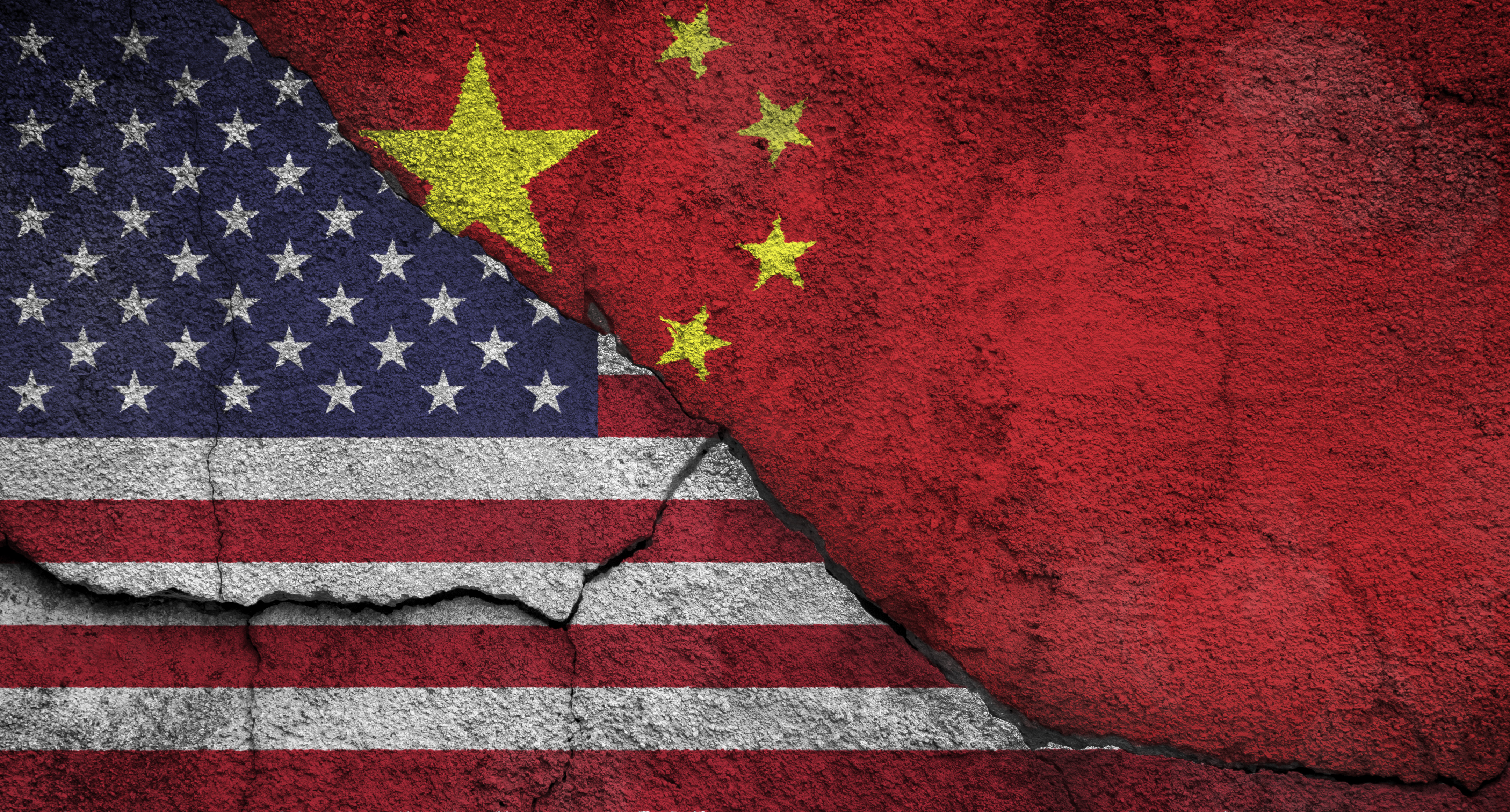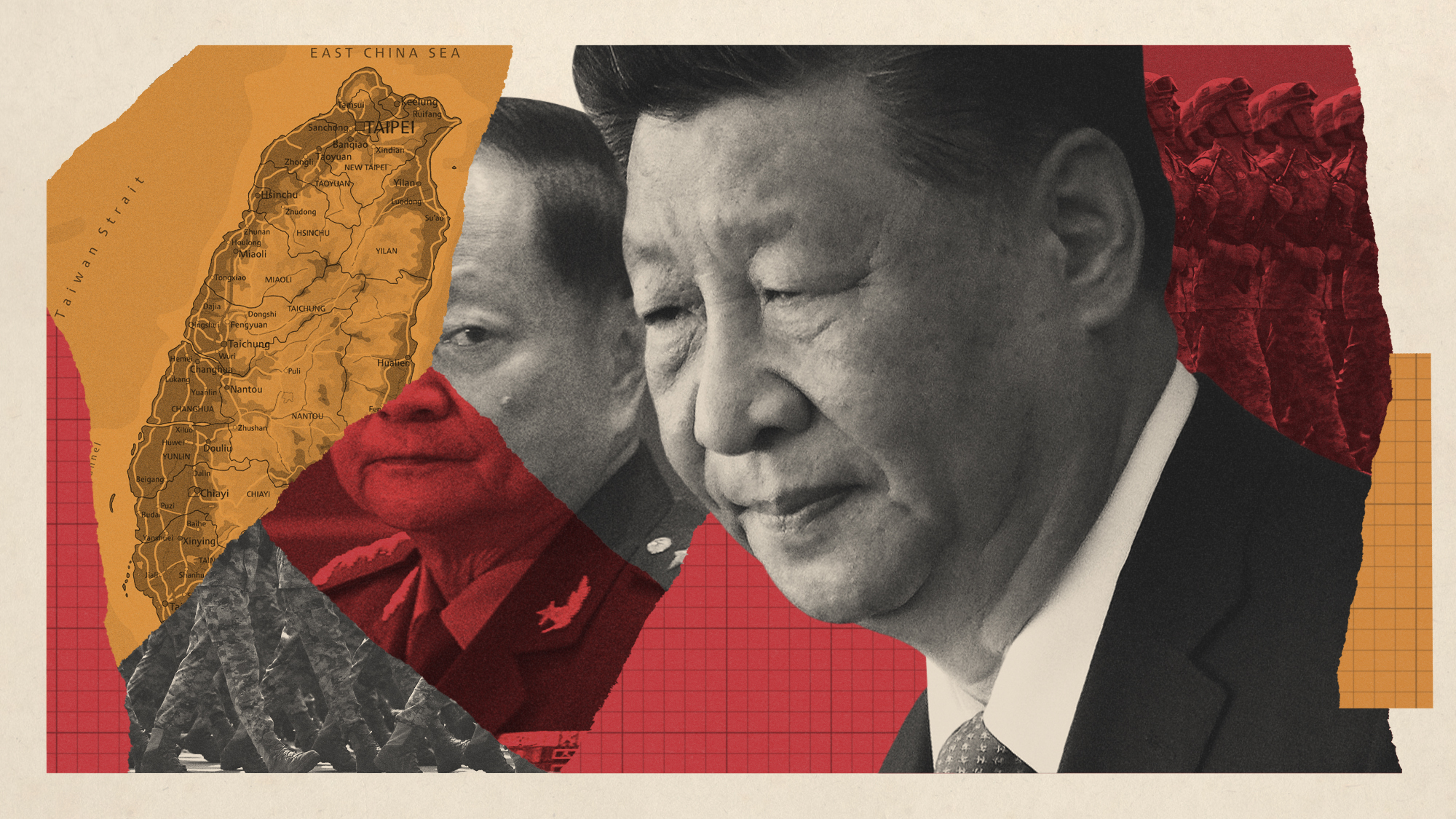Is China supplanting America on the world stage?
Beijing's diplomats brought peace to Iran and Saudi Arabia. Is Ukraine next?


A free daily email with the biggest news stories of the day – and the best features from TheWeek.com
You are now subscribed
Your newsletter sign-up was successful
Is China replacing the U.S. as the world's peace mediator? Chinese leader Xi Jinping said Wednesday his country will send an envoy to Ukraine to seek a settlement in the war with Russia, The Associated Press reports. It's just the latest example of how Xi has "pursued a bigger role in global diplomacy" as part of a campaign to establish China as an even bigger world leader "and to build an international order that favors Beijing's interests."
The Ukraine effort comes a month after China brokered a rapprochement between Iran and Saudi Arabia, two longtime rivals in the Middle East. That deal came as a shock to U.S. officials used to having a hand in the region's affairs. But "all of this comes at a time when the influence of the United States — traditionally the biggest power broker in the Middle East — has waned" in the aftermath of failed wars in Iraq and Afghanistan, Al Jazeera reports.
Some observers suggest China's growing prominence in peace efforts reflects a larger shift in the worldwide balance of power. Thomas Warrick, a former Homeland Security official, tells U.S. News & World Report: "The announcement of China's involvement in restoring Saudi-Iranian diplomatic ties shows that Middle East diplomacy is alive and well … and does not always go through Washington."
The Week
Escape your echo chamber. Get the facts behind the news, plus analysis from multiple perspectives.

Sign up for The Week's Free Newsletters
From our morning news briefing to a weekly Good News Newsletter, get the best of The Week delivered directly to your inbox.
From our morning news briefing to a weekly Good News Newsletter, get the best of The Week delivered directly to your inbox.
What are the commentators saying?
"There was a time when all roads to peace went through Washington," the Quincy Institute's Trita Parsi writes for the New York Times. That changed as "America's foreign policy became more militarized" and the United States "gave up on the virtues of honest peacemaking," frequently taking sides in conflicts instead of acting as a neutral arbiter. The danger now is that the U.S. will see China's efforts as a threat, instead of welcoming peacemaking efforts. America's reputation will be in trouble "if we stand in the way of a world where others have a stake in peace."
"Chinese mediation can benefit the rest of the world too, including the United States," Robert Rust writes for the Union of Concerned Scientists. Yes, it is difficult to see China as an "impartial actor" in Ukraine, given Xi's declaration of a "no-limits friendship" on the eve of Russia's invasion last year. And there are concerns that ending the Russo-Ukraine under Chinese-brokered terms could weaken the democratic world. But if the U.S. wants to retain its influence, it should emphasize cooperation and "work with China to negotiate a peaceful resolution to the conflict."
America could benefit. "The U.S. has long pressured Beijing to assume" a role as "responsible stakeholder on the international stage," Ahmed Aboudouh writes for the Atlantic Council. While China's work on the Iran-Saudi Arabia settlement was clearly part of a push "to reduce U.S. influence on Gulf policies and decision-making, stability in the Persian Gulf also serves U.S. interests. Instead of "deliberately belittling" Chinese diplomacy, the Biden administration "should see China's mediation as an opportunity, not a threat."
What's next?
It's not just Ukraine. China wants to build on its Iran-Saudi Arabia success by helping bring peace to war-torn Yemen, The Diplomat reports. The Yemeni war is widely seen as a proxy struggle between Iran and Saudi Arabia, which means that "Beijing will be able to take some credit for a possible peace in Yemen" even if China doesn't play a direct role in achieving a settlement there.
A free daily email with the biggest news stories of the day – and the best features from TheWeek.com
There are always power issues at play. Xi's efforts to bring about a settlement in Ukraine are probably part of an effort to "undermine a deepening trans-Atlantic solidarity" between the U.S. and Europe that has been bolstered by Russia's invasion, the Washington Post reports. The effort begins in earnest this weekend when China's envoy is expected to arrive in Ukraine "where he will work with officials to bring Russia and Ukraine to the negotiating table."
Will it work? CBS News reports that Ukraine's President Volodymyr Zelensky is cautiously optimistic, calling the visit "an opportunity to use China's political power to reinforce the principles and rules that peace should be built upon." Western officials have expressed skepticism, though: NATO secretary general Jens Stoltenberg recently said China "doesn't have much credibility because they have not been able to condemn the illegal invasion of Ukraine." One thing is clear: American and Western officials will be watching China's efforts closely.
Joel Mathis is a writer with 30 years of newspaper and online journalism experience. His work also regularly appears in National Geographic and The Kansas City Star. His awards include best online commentary at the Online News Association and (twice) at the City and Regional Magazine Association.
-
 How to Get to Heaven from Belfast: a ‘highly entertaining ride’
How to Get to Heaven from Belfast: a ‘highly entertaining ride’The Week Recommends Mystery-comedy from the creator of Derry Girls should be ‘your new binge-watch’
-
 The 8 best TV shows of the 1960s
The 8 best TV shows of the 1960sThe standout shows of this decade take viewers from outer space to the Wild West
-
 Microdramas are booming
Microdramas are boomingUnder the radar Scroll to watch a whole movie
-
 ‘The forces he united still shape the Democratic Party’
‘The forces he united still shape the Democratic Party’Instant Opinion Opinion, comment and editorials of the day
-
 The UK expands its Hong Kong visa scheme
The UK expands its Hong Kong visa schemeThe Explainer Around 26,000 additional arrivals expected in the UK as government widens eligibility in response to crackdown on rights in former colony
-
 ‘Hong Kong is stable because it has been muzzled’
‘Hong Kong is stable because it has been muzzled’Instant Opinion Opinion, comment and editorials of the day
-
 What do Xi’s military purges mean for Taiwan?
What do Xi’s military purges mean for Taiwan?Today’s Big Question Analysts say China’s leader is still focused on reunification
-
 What is at stake for Starmer in China?
What is at stake for Starmer in China?Today’s Big Question The British PM will have to ‘play it tough’ to achieve ‘substantive’ outcomes, while China looks to draw Britain away from US influence
-
 ‘It’s good for the animals, their humans — and the veterinarians themselves’
‘It’s good for the animals, their humans — and the veterinarians themselves’Instant Opinion Opinion, comment and editorials of the day
-
 What is China doing in Latin America?
What is China doing in Latin America?Today’s Big Question Beijing offers itself as an alternative to US dominance
-
 Trump considers giving Ukraine a security guarantee
Trump considers giving Ukraine a security guaranteeTalking Points Zelenskyy says it is a requirement for peace. Will Putin go along?
